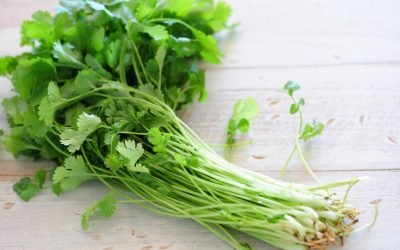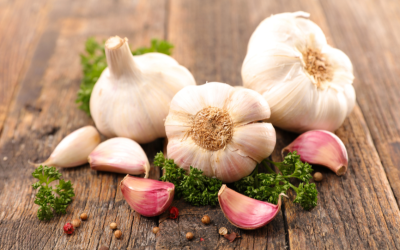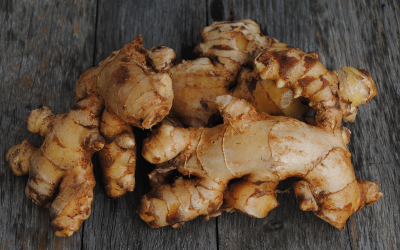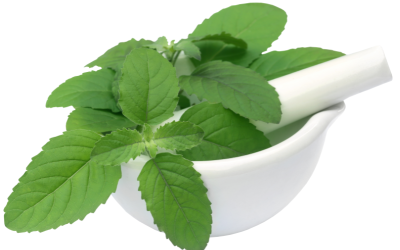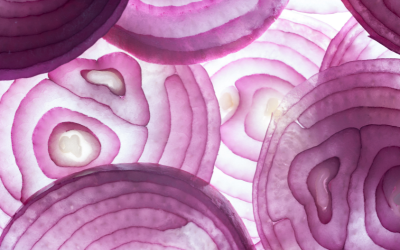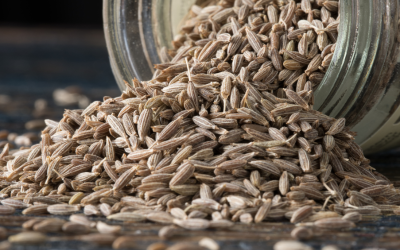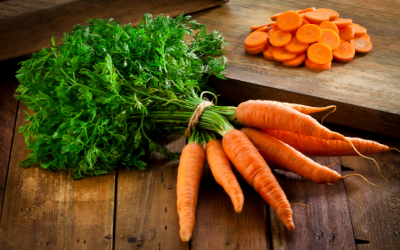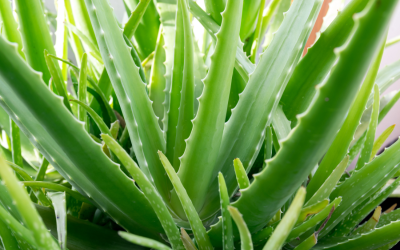How Cinnamon Boosts Energy and Burns Fat?

Cinnamon is a popular spice known for its distinct flavor and aroma, but did you know that it also offers a range of health benefits? From its use in home remedies to its potential to alleviate certain diseases, cinnamon has been valued for centuries for its medicinal properties. In this article, we will explore the various health benefits of cinnamon, its role in home remedies, and the precautions to take when using it in organic herbal products.
Cinnamon is a native of Sri Lanka and tropical Asia. It has been cultivated from ancient times. It appears to have reached Egypt and Europe by the 5th century BC. This tree occurs in South India up to altitude of 500 meters but is more common at lower altitudes, even below 200 meters.
An analysis of cinnamon shows it to consist of moisture, protein, fat, fiber, carbohydrates and ashes, besides calcium phosphorus, iron, sodium, potassium, thiamine, riboflavin, vitamin C and A. It’s calorific value is 355.
Benefits of Cinnamon
Energy Boost: Cinnamon may help boost energy levels by improving circulation and blood flow, which can help deliver oxygen and nutrients to cells more efficiently. This can result in increased stamina and overall vitality.
Fat Burn: Cinnamon has thermogenic properties, which means it can slightly increase the body’s metabolic rate and promote fat burning. This can be particularly beneficial for those looking to manage their weight or lose excess fat.
Improved Insulin Sensitivity: Cinnamon has been found to improve insulin sensitivity, which can help regulate blood sugar levels and prevent spikes and crashes. This balance can contribute to sustained energy levels throughout the day.
Mood Enhancement: Cinnamon’s warming and soothing aroma may help uplift mood and reduce stress. Its scent is believed to have a calming effect on the mind, which can contribute to an overall sense of well-being.
Natural Appetite Control: Cinnamon may help regulate appetite and cravings due to its impact on blood sugar levels. By stabilizing glucose, it can help prevent sudden hunger pangs and overconsumption.
Liver Health: Cinnamon may support liver health by promoting detoxification and helping to protect the liver from damage. A healthy liver plays a key role in metabolism and energy production.
Improved Cognitive Function: Cinnamon contains compounds that may benefit brain health and improve cognitive function. Some studies suggest that cinnamon can enhance memory and protect against age-related cognitive decline.
Natural Anti-Microbial Properties: Cinnamon has natural anti-microbial and anti-fungal properties, which can help protect the body from infections and support the immune system.
By incorporating cinnamon into your diet in moderation, you can enjoy these unique benefits along with its delicious flavor. Always consult with a healthcare professional if you have any concerns or specific health conditions before making significant changes to your diet.
How can you incorporate Cinnamon in daily life
Cinnamon is a versatile spice that can be easily incorporated into your daily diet in various ways.
Sprinkle on Breakfast: Add a dash of cinnamon to your morning oatmeal, yogurt, or smoothie for a flavorful start to the day.
Flavor Your Coffee or Tea: Stir a pinch of cinnamon into your coffee grounds before brewing or add a sprinkle to your tea for a warming, aromatic touch.
Bake with Cinnamon: Use cinnamon in baked goods such as muffins, pancakes, waffles, and quick breads for added flavor and health benefits.
Season Fruits: Sprinkle cinnamon over fresh fruits like apples, pears, or bananas for a tasty and healthy snack.
Mix into Cereals: Add a sprinkle of cinnamon to cold or hot cereals to enhance the flavor and boost nutritional value.
Incorporate in Smoothies: Blend cinnamon with fruits, yogurt, and other smoothie ingredients for a delicious and nutritious drink.
Add to Nut Butters: Mix cinnamon into almond, peanut, or other nut butters to add a hint of sweetness and depth of flavor.
Season Savory Dishes: Use cinnamon in savory recipes such as curries, stews, and chili for a rich and complex flavor profile.
Use in Sauces and Dressings: Add a pinch of cinnamon to homemade salad dressings, marinades, or sauces for a unique twist.
Top Your Toast: Spread nut butter or honey on toast and sprinkle with cinnamon for a flavorful and nutritious breakfast or snack.
Enhance Baked Goods: Add cinnamon to cookies, cakes, and other desserts for a warm, spiced flavor.
Create a Spiced Yogurt: Mix cinnamon into plain yogurt along with honey or fruit for a tasty and healthy treat.
Make Cinnamon Tea: Steep a cinnamon stick in hot water to create a soothing and flavorful tea.
Combine with Nuts and Seeds: Toss cinnamon with nuts and seeds for a healthy snack or to top salads and yogurt.
Use in Trail Mix: Mix cinnamon with dried fruits, nuts, and seeds to create a delicious and energy-boosting trail mix.
Home Remedies of Cinnamon and methods to use
1) Common Cold: Cinnamon water is an effective remedy for common cold. Coarsely powdered and boiled in a glass of water with a pinch of black pepper powder and honey, it can be used as medicine in cases of influenza, sore throat, and malaria. Its regular use during the rainy season prevents attacks of influenza. Cinnamon oil, mixed with honey, gives relief from cold.
2) Digestive Disorder: Cinnamon checks nausea, vomiting and diarrhea. It stimulates digestion. A tablespoon of cinnamon water, prepared as for cold and taken half an hour after meals, relieves flatulence and indigestion.
3) Acne: Paste of cinnamon powder prepared with few drops of fresh lime juice can be applied over pimples and blackheads.
4) Headache: Headache caused by exposure to cold air is readily cured by applying a paste of finely powdered cinnamon mixed in water on the forehead.
5) It reduces storage of fat in the body: Cinnamon helps regulate blood sugar by boosting insulin sensitivity. This hormone, made by the pancreas, controls blood sugar levels. Better insulin sensitivity helps balance insulin levels, reducing fat storage and sugar cravings. This is especially important for menopausal women, as they may face insulin resistance due to estrogen loss.
6) Helps in fat burning: A high metabolism reduces the risk of fat buildup in the body. In a study, treating human fat cells with cinnamaldehyde (a key cinnamon compound) increased the activity of genes and enzymes that boost metabolism, aiding in fat burning.
Other than this cinnamon can be highly beneficial in the treatment of some other ailments like asthma, bad breath, excessive menstruation, uterus disorders and gonnorhoes.
Precautions
Moderation: Consume cinnamon in moderate amounts as excessive intake can be harmful.
Coumarin Content: Some varieties, like Cassia cinnamon, contain high levels of coumarin, which can be toxic to the liver in large doses.
Allergies: Some people may be allergic to cinnamon and could experience skin irritation or other allergic reactions.
Blood Sugar: Cinnamon may lower blood sugar levels, so those with diabetes should monitor their levels closely and consult a healthcare provider.
Pregnancy and Breastfeeding: Pregnant or breastfeeding women should use cinnamon with caution and seek medical advice before using it as a supplement.
Interactions with Medications: Cinnamon may interact with certain medications, particularly those for diabetes, blood thinning, or liver conditions.
Quality of Cinnamon: Choose high-quality cinnamon and be cautious of supplements, as they may contain varying levels of active compounds.

How to make some Cinnamon Based products for home remedies:
Long Pepper (Piper longum) can be utilized to create various herbal products, each harnessing its unique medicinal properties. Here are some simple recipes for making different herbal products from Long Pepper:
- Cinnamon water: Cinnamon water can be made by Cinnamon coarsely powdered and boiled in a glass of water with a pinch of black pepper powder and honey.
- Cinnamon Tea
- Ingredients: Cinnamon sticks or ground cinnamon, hot water, optional sweetener like honey.
- Procedure:
- Add a cinnamon stick or 1/2 teaspoon of ground cinnamon to a cup of hot water.
- Let it steep for 5-10 minutes.
- Add honey or your preferred sweetener if desired.
- Remove the cinnamon stick (if used) and enjoy the tea.
Cinnamon Sugar
- Ingredients: 1/4 cup granulated sugar, 1 tablespoon ground cinnamon.
- Procedure:
- Combine the sugar and cinnamon in a small bowl.
- Mix well until fully combined.
- Store the mixture in an airtight container.
- Use as a topping for toast, oatmeal, or other baked goods.
Cinnamon Honey
- Ingredients: 1/4 cup honey, 1 teaspoon ground cinnamon.
- Procedure:
- In a small bowl, mix the honey and cinnamon until well combined.
- Store in a jar or airtight container.
- Use as a sweetener or spread.
Cinnamon Butter
- Ingredients: 1/2 cup softened butter, 1 tablespoon ground cinnamon, 1 tablespoon honey or sugar.
- Procedure:
- In a small bowl, combine the softened butter, cinnamon, and honey or sugar.
- Mix well until smooth.
- Store in an airtight container in the refrigerator.
- Use as a spread on bread, pancakes, or waffles.
Cinnamon Face Mask
- Ingredients: 1 tablespoon honey, 1/2 teaspoon ground cinnamon, 1 tablespoon plain yogurt.
- Procedure:
- In a small bowl, combine the honey, cinnamon, and yogurt.
- Mix until smooth.
- Apply the mask to your face, avoiding the eye area.
- Leave on for 10-15 minutes.
- Rinse with warm water and pat dry.
Cinnamon Lip Balm
- Ingredients: 1 tablespoon beeswax, 2 tablespoons coconut oil, 1 drop cinnamon essential oil.
- Procedure:
- In a heatproof bowl, melt the beeswax and coconut oil together over a double boiler.
- Remove from heat and add the drop of cinnamon essential oil.
- Stir well to combine.
- Pour the mixture into small containers and let it cool and harden.
- Use as needed for lip care.
Cinnamon Sachets
- Ingredients: Ground cinnamon, dried lavender or other aromatic herbs (optional), small fabric pouches.
- Procedure:
- Mix ground cinnamon with dried lavender or other aromatic herbs if desired.
- Fill small fabric pouches with the mixture.
- Seal the pouches and use them to freshen drawers, closets, or bags.
These are just a few examples of cinnamon-based products you can make at home. Adjust the recipes and proportions according to your preferences.
References:
Pasupuleti Visweswara Rao, and Siew Hua Gan. 2014. Cinnamon: A Multifaceted Medicinal Plant. Hindawi Publishing Corporation. View
Natalia Błaszczyk, Angelina Rosiak, and Joanna Kałużna-Czaplińska.2021. The Potential Role of Cinnamon in Human Health. MDPI. View
Send Us A Message
FAQs
- The safe amount of cinnamon varies depending on the type. For Cassia cinnamon, limit intake to about 1/2 to 1 teaspoon per day due to its higher coumarin content. For Ceylon cinnamon, higher daily consumption is generally considered safer. Always consult a healthcare provider for personalized advice.
- While cinnamon may help regulate blood sugar levels and improve insulin sensitivity, which can support weight management, it is not a guaranteed weight loss solution. It's best used as part of a balanced diet and healthy lifestyle.
- Cinnamon is generally safe in culinary amounts for pregnant and breastfeeding women. However, consuming large amounts of cinnamon supplements is not recommended during pregnancy or breastfeeding due to limited research on its safety. Consult your healthcare provider for personalized advice.
- Consuming too much cinnamon, especially Cassia cinnamon, can lead to liver toxicity due to its coumarin content. Some people may also experience allergic reactions or irritation. Always use cinnamon in moderation and consult a healthcare provider if you have concerns.







